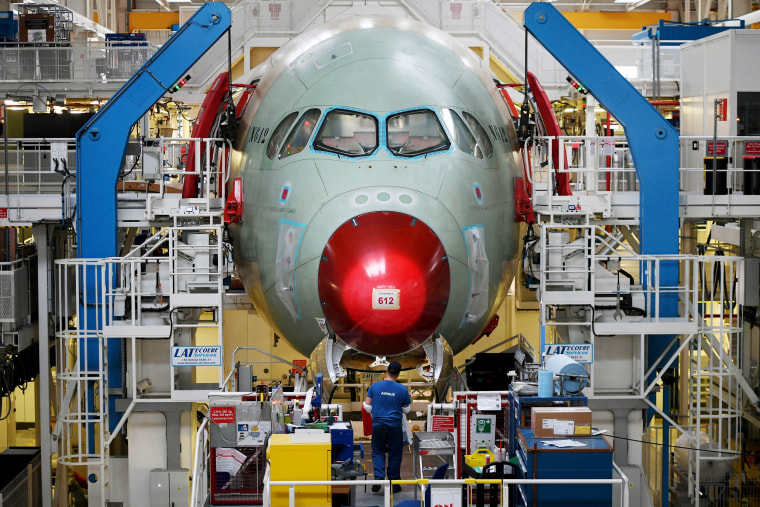In a recent development that has sent shockwaves through the aviation industry, the Federal Aviation Administration (FAA) has raised concerns about the possible use of counterfeit titanium in planes manufactured by Boeing and Airbus. This revelation has serious implications for both manufacturers and airlines, as the use of substandard materials in aircraft construction can compromise safety and lead to catastrophic failures.
The FAA’s investigation into the allegations of counterfeit titanium being used in airplanes has highlighted the need for stringent quality control measures in the aerospace industry. Titanium, known for its strength, light weight, and corrosion resistance, is a crucial component in aircraft manufacturing. Any compromise in the quality of titanium used in critical parts of an aircraft can have disastrous consequences.
The implications of using counterfeit titanium in planes extend beyond safety concerns. It raises questions about the integrity of the supply chain and the effectiveness of quality assurance processes employed by aircraft manufacturers. Boeing and Airbus, as industry leaders, have a responsibility to ensure that the materials used in their planes meet the highest standards of quality and safety.
The potential use of counterfeit titanium in aircraft underscores the importance of regulatory oversight and enforcement in the aerospace industry. The FAA’s role in monitoring and assessing the compliance of manufacturers with safety regulations is crucial in maintaining public confidence in the safety of air travel. Any lapses in quality control and oversight can erode trust in the aviation sector and have far-reaching implications for the industry as a whole.
As the investigation into the use of counterfeit titanium in planes continues, both Boeing and Airbus must take proactive measures to address these concerns and reassure the public about the safety of their aircraft. Implementing robust quality control processes, enhancing supply chain transparency, and collaborating closely with regulatory authorities are essential steps that manufacturers must take to prevent any recurrence of such incidents in the future.
In conclusion, the allegations of counterfeit titanium being used in planes manufactured by Boeing and Airbus serve as a stark reminder of the importance of maintaining the highest standards of quality and safety in the aerospace industry. The FAA’s vigilance and oversight in uncovering such issues are paramount in ensuring the airworthiness of commercial aircraft. It is imperative for manufacturers to uphold the highest standards of integrity and compliance to safeguard the well-being of passengers and the reputation of the aviation industry as a whole.



























